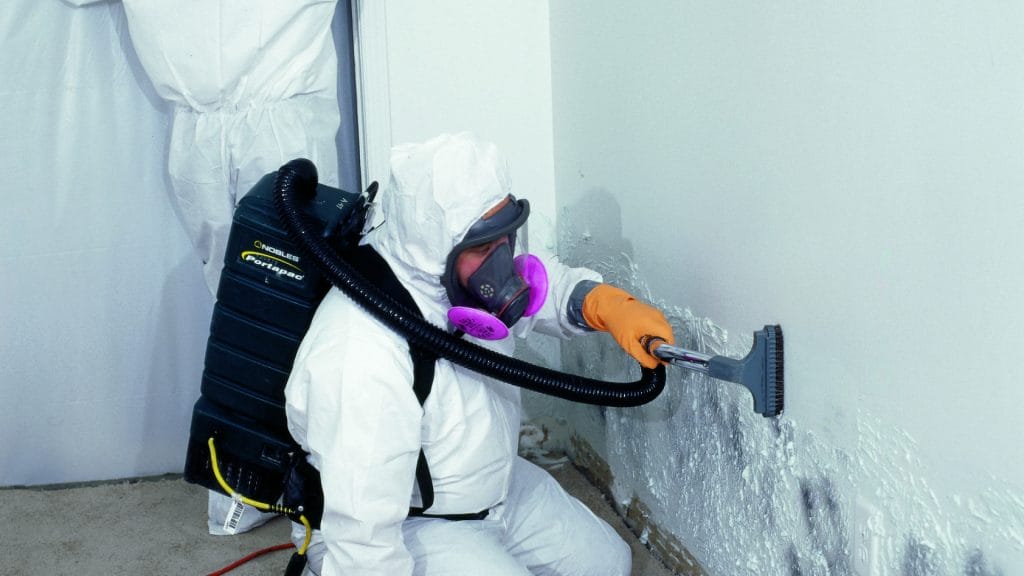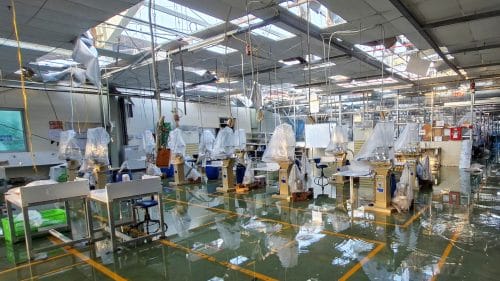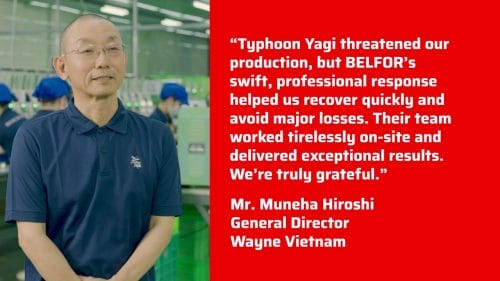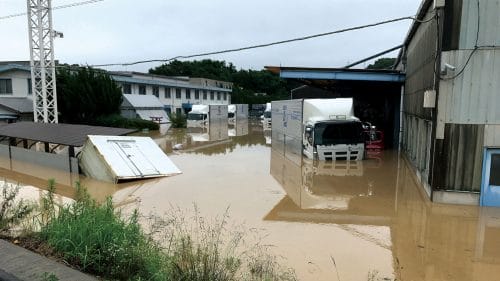Read More
Mould Treatment & Remediation Services in Singapore
BELFOR Singapore employs advanced techniques and tools to identify, treat, and prevent mould infestations, ensuring a safe and healthy environment for your home or business. Trust us to restore your space to its pristine condition, protecting your property and health from the dangers of mould damage.
What is Mould?
Mould is a type of fungi that grows in multicellular structures called hyphae. Mould spores are invisible to the naked eyes. Mould grows best in damp places, where they can begin to grow within 12-24 hours and become visible within 72 hours. There are thousands of different species of mould; some are used to produce common things like medicine (namely penicillin) and foods. However, when mould grows in your business property, it can be detrimental, causing property damage and health issues.
Mould growth in or around your property is dangerous because:
When mould starts to grow, it feeds on the materials it is growing on, resulting in irreversible damage, if not treated promptly.Mould damage is particularly troublesome in commercial environments such as hospitality venues, healthcare facilities, gyms, cinemas, hotels, old-age homes, and food processing industries.
These settings are prone to high humidity and moisture, creating ideal conditions for mould proliferation. Such infestations not only compromise the structural integrity of buildings but also pose serious health risks to occupants.
Mould releases tiny spores and byproducts into the air, which could irritate or be the cause of many illnesses. If these are breathed in, they could cause respiratory problems.Stachybotrys Chartarum (Commonly known as black mould) is a common form of mould found in properties that can lead to such problems.
Why Professional Mould Remediation is Essential
When it comes to mould removal, especially in commercial and industrial environments, professional remediation is not just recommended; it’s necessary. Mould infestations can spread quickly over large areas and can be deeply ingrained in structures and air systems. BELFOR possess the necessary expertise, innovative technology, and equipment to effectively identify and eradicate mould from surfaces.
Our team of mould remediation specialists are equipped with extensive experience in handling complex mould situations in various settings, including large-scale commercial buildings and critical industrial sites. We ensure that mould is removed safely and thoroughly, minimising downtime and safeguarding the health of building occupants. Trust BELFOR to restore your environment to a safe, mould-free condition with industry-leading solutions tailored to your specific needs.
Mould Remediation Process
Mould remediation or mould removal is a complex process which involves much more than just simply spraying and wiping clean the affected surfaces.
BELFOR’s mould removal specialists in Singapore will take the following steps to remediate mould:
-
Inspection & Assessment (Detecting Mould Issues):
Our specialists begin with a thorough inspection to detect mould presence and identify the underlying moisture sources. This step is crucial for determining the extent of mould issues and devising an appropriate remediation strategy.
-
Moisture Control & Prevention (Stopping Mould Growth):
Addressing moisture problems is the first line of defense against mould growth. Our team prioritises detecting leaks or any other water issues to halt further mould proliferation.
-
Mould Removal & Cleaning (Effective Remediation):
After isolating the affected area to prevent cross-contamination, we remove all visible mould from surfaces, including challenging areas like HVAC systems and ceilings. The removal process is followed by the application of antimicrobial or biocide treatments to thoroughly clean the affected surfaces.
-
Containment & Decontamination (Preventing Spread):
We implement strict containment measures to isolate affected areas from the rest of the facility during the mould removal process. This is critical to prevent the spread of mould spores during the cleaning process.
-
Drying & Dehumidification (Ensuring Safety & Prevention):
Complete drying is essential in mould remediation. We employ air movers and dehumidifiers to ensure all treated areas are thoroughly dried. Moisture levels are meticulously monitored with moisture meters to confirm the environment is optimally dried and mould growth risks are minimised.
Customised Mould Remediation Services
BELFOR Singapore offers specialised mould remediation tailored to various settings, ensuring minimal disruption while effectively tackling mould.
Commercial Spaces:
For gyms, cinemas, hotels, and office buildings, BELFOR ensures mould is thoroughly treated without hindering daily business operations. Our services are designed to address the unique challenges of high-traffic areas and complex structures.
Healthcare Facilities:
In hospitals and care homes, maintaining a sterile environment is critical. BELFOR employs stringent containment and air filtration methods to prevent cross-contamination, ensuring healthcare services operate smoothly while safeguarding patient and resident health.
Food Industries:
BELFOR’s expertise extends to large-scale industrial environments, managing mould remediation in areas with complex machinery and extensive spaces. Our approach minimises downtime by applying innovative techniques for safe and effective mould removal.
Why Choose BELFOR for Mould Remediation?
At BELFOR, we specialise in the removal of mould from properties, setting industry benchmarks with our expertise. Our mould removal teams in Singapore are trained to solve your mould problems, whether it is in your offices or facilities. Mould is the invisible cause of many respiratory illnesses. This is why professional Mould Remediation is crucial for safe and healthy environment.
Large-scale mould removal in Singapore demands expert knowledge and specialised equipment to ensure comprehensive mould remediation. In complex scenarios, our mould removal specialists are essential for guaranteeing effective and efficient remediation, regardless of the size of the affected area.
Specialised Mould Remediation Services We Provide
- Structural Drying & Dehumidification Services
- Flood Damage Mould Removal Services
- Specialised Item Cleaning Services
- HVAC System Decontamination Services
Contact BELFOR for Reliable Mould Removal Services
Ensure your property is mould-free and safe. Contact BELFOR today for reliable, professional mould removal services tailored to meet your specific needs.
Mould Damage Inquiry Form
"*" indicates required fields
BELFOR understands the challenges you face.
A dedicated team that provides you with personalised and optimum support at all times.



